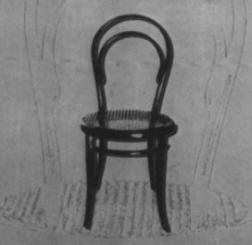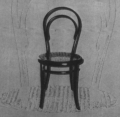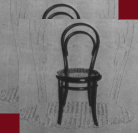|
| ||
|
Characteristics of Dramatic Publicity in the East Central European Grotesque after 1956 After World War II East-Central Europe fell under the influence of the Soviet Union. Nevertheless, after the take-over of power by the communist parties in these countries, this was the region where people wanted to eliminate Soviet influence and communist government. These efforts led to riots in Poland and to the revolution in Hungary in 1956, to the Prague Spring in 1968, and to the temporary victory of the Solidarity Movement in Poland in 1980. Since 1989 these are the countries that have done the most for democratic development in the region.
After the period of show trials, personality cult, hard totalitarian
dictatorship, and the doctrine of ”socialist realism” in the arts, from the
end of the 1950's there were some changes in the politics and culture of the
Central European countries. The new period had two representative
genres in this region, theater and film. Despite authoritarian political
control and censorship, these arts became aesthetically the most significant The first experiment to face with the challenge of the politically manipulated publicity was the Hungarian Miklós Mészöly's play, The Window-cleaner (1957), in which the writer demonstrates the mechanisms of one-channel publicity and politically controlled society. The first internationally known drama embodying a new grotesque voice and point of view in a socialist country was Mrożek's The Police (Policja), written in 1958, and first produced the same year. The play is based on the assumption about what would happen if all private opinions identified with the one governmental, official point of view. In the totalitarian system of The Police, all private opinions have to be detected and investigated, and loyalty has to be declared. But as the Power distrusts the people, it maintains an institution to control this declared loyalty. Agents-provocateur walk on the streets provoking people against the political system. One of their representatives, a police sergeant appears in the play, who reports to his chief on the people's reaction. ”I was trying to shout anti-government slogans - and they beat me up. (...) I was beaten up by the loyal population.” The Prisoner's decision to sign the declaration of loyalty in the first scene questioned by the Police Chief, who tests the Prisoner's honesty by separating official and personal opinion from each other. But the Prisoner is too naive to make the difference, and he totally identifies himself with the official view. The Police Chief tries to catch him in a lie, tries to use elements of conspiracy, but the Prisoner turns to be the best subject of manipulative publicity. His career as the General's Adjutant represents the preferences of a Police State in selecting its officials. Neither the revolutionary, nor the dissident past, but the blind loyalty of the present is important. This has been a the officially accepted morality in East-Central Europe under communism. In Mrożek's The Prophets paradoxes of loyalty and identity are based on the experience of duplication. The awaited prophet arrives in two identical samples. The two identical, undistinguishable figures make it impossible to ”practice” prophecy in the authentic way. Because, according to the Regent, ”two prophets have no sense. The new truth must be one, otherwise it is not a truth”. This paradox is approached from many sides in the play. The two prophets protest separately against their individual personalities not being acknowledged. Later the power tries to convince one of them to resign from being a prophet. Finally, one of the two is murdered, but both die, because their fate was identical too. The play expresses a similar idea to Örkény's Pisti, which claims that however many prophets there are, as so far as they are identical, they represent one and the same idea. Örkény presents the experience of lost identity in The Tot Family in the Fire Chief's fate. The situation forces Tot, the Fire Chief to try to be totally loyal to his guest, the Major, who is the commander of Tot's son on the front lines in World War II. The Fire Chief hopes that his loyalty will help his son to get a job in the office of the Major instead of fighting. But Tot's effort to achieve total loyalty leads to the loss of his identity (and his effort is useless as his son was killed in action already.) The play shows the process how the protagonist loses his identity step by step, because the Major occupies all the functions Fire-Chief Tot fulfilled both in the family and the village. While the Major replaces the Fire-Chief, the structure of the community remains the same, only Tot is pushed out form it. The turn at the end of the play, when Tot murders (cuts into four equal pieces) the Major, can be seen both as his effort to regain his lost identity and the proof that total loyalty is impossible if one wants to be true to oneself. In Havel's The Garden Party the issue of identity appears in the figure and fate of Hugo. ”On the level of action the play deals with the overnight success of a young man named Hugo Pludek. At the beginning Hugo is a good-for-nothing whose indifference concerning his future chagrins his ambitious parents.” (...) ”His swift success (...) takes its toll by destroying his personality. The most outstanding feature of Hugo is his ability to adapt to his surroundings, through which alone he is able to outclass others in the complex bureaucratic world. As he assimilates the new milieu, he gradually destroys his own self to such a degree that he ceases to be aware of his original identity. At the end of the drama he is a changed, faceless person not even recognized by his parents”, wrote Paul Trensky on the play. The process through which the phenomenon of lost identity appears combines two different changes. One is Hugo's career, the other is his ”loss of himself”. By combining these two opposite processes, Havel shows how an alienated, bureaucratic society (counter)selects its agents. The less individuality one has the better one can fit into the system. Hugo's problem of identity is represented in his playing chess with himself, when he is duplicated in the game. Sociologically speaking, Hugo is a petit bourgeois youngster at the beginning of the play. By the end he is an impersonal institutional creature. His dramatic role is rather a function than the embodiment of a character. Örkény represents Pisti at the beginning of Part II as a vacuum in Pisti in the Bloodbath (Pisti a vérzivatarban). At the end of both The Garden Party and The Memorandum the protagonists give an ironical summary of the basic issues of the play. New Millennial Plays and Dramatic Techniques on the European Horizon
The second part of the essay discusses the dramatic oeuvre of East German writer Heiner Müller, surveying his major dramatic works in the three periods of his career, and analyzing his collaboration with American stage director, Robert Wilson. Heiner Müller can be an excellent subject for a study of central and peripheral, as his career represents dynamic changes in taking different positions in the literary canon. In the 1950s when he wrote his production plays in East Germany he was on the periphery of the common German literature, and he was not in the centre of the East German literature either. Then a few decades later he became part of the internationally acclaimed small group of contemporary theatre artists and one of the central figures of new drama, but he did not arrive into the centre of East German literature. His example demonstrates that one can be on the periphery of one's national literary canon while becoming part of the mainstream of contemporary world literature. In this part of the paper Müller's major dramatic works, his oeuvre's central concepts and images are discussed, together with the shift in his interest from literature towards dramaturgy, including his own works as theatre director. Domesticating a Theatre of Cruelty: The Plays of Martin McDonagh on the Hungarian Stage
By the summer of 2005 in Hungary there have been nine productions of four of Martin McDonagh's plays, the first Hungarian premiere having taken place in October 1997. Notably, the Hungarian reception did not follow the sequence and structure of the British premieres. Not all three plays of The Leenane Trilogy have been produced so far. The Beauty Queen of Leenane had three premieres (in 1997, 1998 and 2004), The Lonesome West had one (in 2004), while A Skull in Connemara has not reached the Hungarian stage yet. Beside the success of The Beauty Queen of Leenane there are two other plays whose reception is worth attention, The Cripple of Inishmaan with three premieres (two in 1998, and one in 2001), and The Lieutenant of Inishmore with two productions (in 2002 and 2003). Coinciding with the fact that ”McDonagh's international profile grew throughout 1998”,[1] this was the year when most Hungarian premieres of McDonagh took place with two productions of The Cripple of Inishmaan and one of The Beauty Queen of Leenane. The context of the McDonagh reception in Hungary can be connected to the phenomenon we call New European Drama. McDonagh's plays arrived as representatives of the New European Drama, which is mainly the extension of a trend in recent British drama.[2] McDonagh has been seen as a member of this new generation of playwrights, labelled by different terms, as new brutalists, representatives of in-yer-face theatre etc. This young generation of playwrights appearing in the mid-1990s was immediately acclaimed internationally, primarily in Central Europe. One basic reason why the representational interpretation of McDonagh's plays can be challenged is the ubiguity and extent of violence as a permanent motif and ingredient of these works. The savagery of the plays has been inspired by the mass media, images of accidents, wars, catastrophes, gangster movies etc. The exaggeration of brutality, the depth of violence, the quantity of bloodshed in McDonagh's plays testify to the influence of or at least an affinity with such films as Pulp Fiction, Desperado or Fargo. The amount of violence in these films turns them into a parody of their own genre, which happens in the case of the McDonagh plays as well. In spite of these features, the majority of the Hungarian theatrical reception has been characterised by the representational approach to these plays. Even those few exceptional productions that have used stylized acting and/or directing primarily, demonstrated the representational perspective as well. The few Hungarian productions of the plays of Martin McDonagh so far represent a variety of interpretations in terms of directorial concept, way of acting, set design, etc., but there is a clear tendency of domesticating these plays for the Hungarian stage in two senses. On the one hand, to stress those parts and motifs of the plays that can be linked to Hungarian experiences both social and individual, and on the other hand to respond to the challenge of the stage representation of cruelty by taming violence to a bearable level. The first feature of McDonagh's Hungarian reception fits into the tendency of his international success, for even in the case of the same Druid Theatre productions on tour, ”audiences received the plays as local productions”.[3] The second characteristic has more to do with Hungarian theatre traditions, namely the predominance of the Stanislavski-method based acting, and the view of theatre as belonging primarily to entertainment. McDonagh's oeuvre has a meta-theatrical feature, confronting theatre with the general problem of representation. Although in practice anything can be represented by anything else on stage there are some basic human activities which have always been a challenge for the theatre. Since film can show everything directly, e. g. any parts of the human body – both from inside and outside – and every kind of action, therefore theatre cannot compete with the film in naturalistic-realistic representation. Such basic human activities as eating, giving birth, coupling, dying, bleeding etc. are very difficult to be represented on stage. If the act is stylised, it can become ridiculous; if rendered realistically, the spectators will meditate on the technique of managing to make it seem real. McDonagh regards the issue of representation as something of a problem primarily for the theatre and not so much for the playwright. In his plays he includes all sorts of theatrical impossibilities. Reading these plays as literature, the brutal, violent scenes have a full value. The problem how this savagery is to be put on stage is to be managed by the theatre. Hungarian theatre has had a soft answer to this problem making McDonagh's theatre of cruelty into an easy world of familiarity, similarly to the example of an American production described by Patrick Lonergan.[4] But perhaps this domestication tells more of the premises and preferences of the Hungarian theatre than of the world of Martin McDonagh's plays. [1] Patrick Lonergan, 'Druid Theatre's Leenane Trilogy on Tour: 1996�'. Irish Theatre on Tour. Irish Theatrical Diaspora Series: 1. Edited by Nicholas Grene and Chris Morash. Carysfort Press, Dublin, 2005, 194. [2] Sanja Nikčević, Nova europska drama ili velika obmana. Meandar, Croatia, 2005. (I have used the English translation of this work, entitled 'Stupid, old fashioned or backward, or how in-yer-face theatre, a violent British trend, became „New European Drama”'.) [3] Patrick Lonergan, op. cit. [4] Patrick Lonergan, ”'The Laughter Will Come of Itself. The Tears Are Inevitable': Martin McDonagh, Globalization, and Irish Theatre Criticism”, Modern Drama, 47.4 (Winter 2004), 636�. |
||
|
Kiadványunk felsőoktatási segédanyag, mely A Pécs / Sopiane Örökség Kht,a Pro Renovanda Cultura Hungariae Alapítvány „Klebelsberg Kunó Emlékére” Szakalapítványa,valamint A Pécs2010 Programtanács „Európa Kulturális Fővárosa - 2010” cím elérésére kiírt pályázatán megítélt Nívódíj segítségével, a kiadványhoz kötődő konferencia pedig a Pécsi Tudományegyetem Rektora, a Pécsi Tudományegyetem Bölcsészettudományi Karának Dékánja, a Modern Irodalomtörténeti és Irodalomelméleti Tanszék, a magyar szakos levelező képzés és a Liber-Arte Alapítvány által nyújtott támogatásokkal jöhetett csak létre. Segítségükért ezúton is köszönetet mondunk. |
||
 Péter P. Müller
Péter P. Müller
